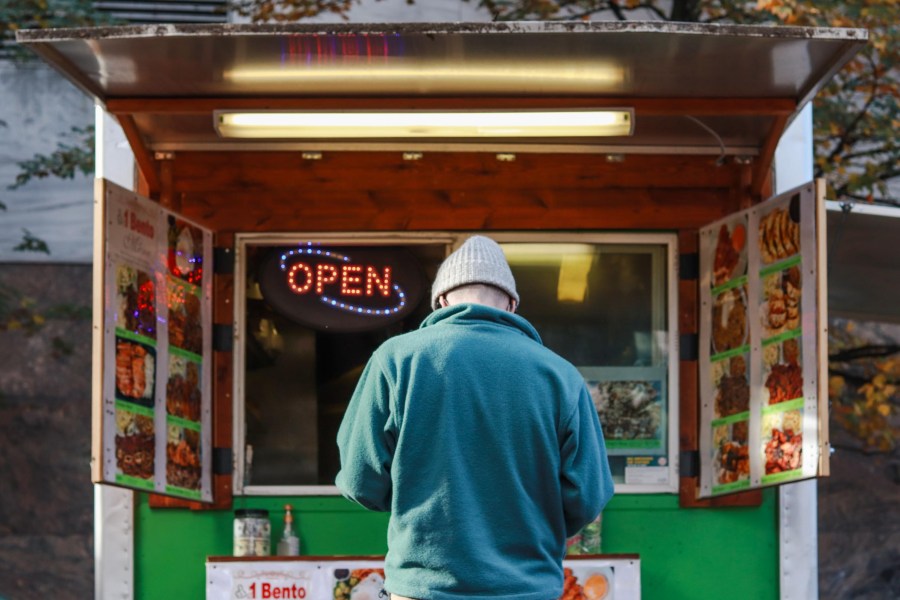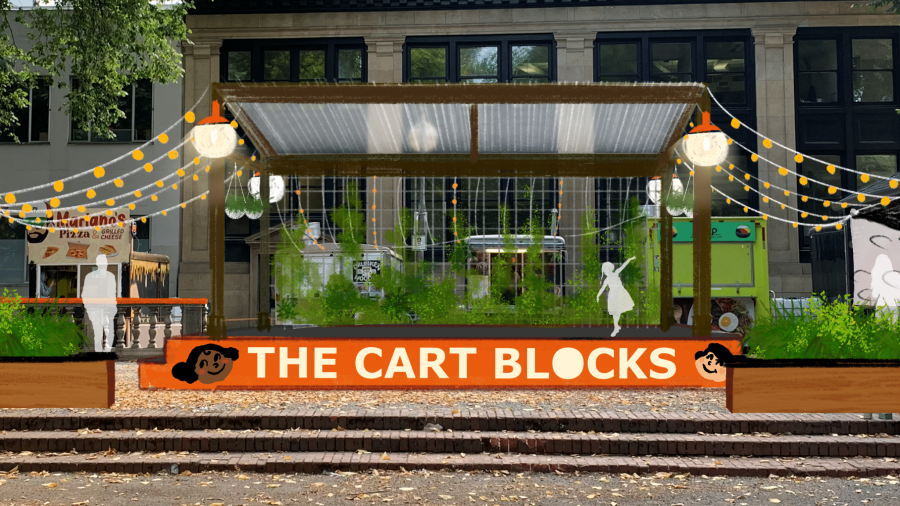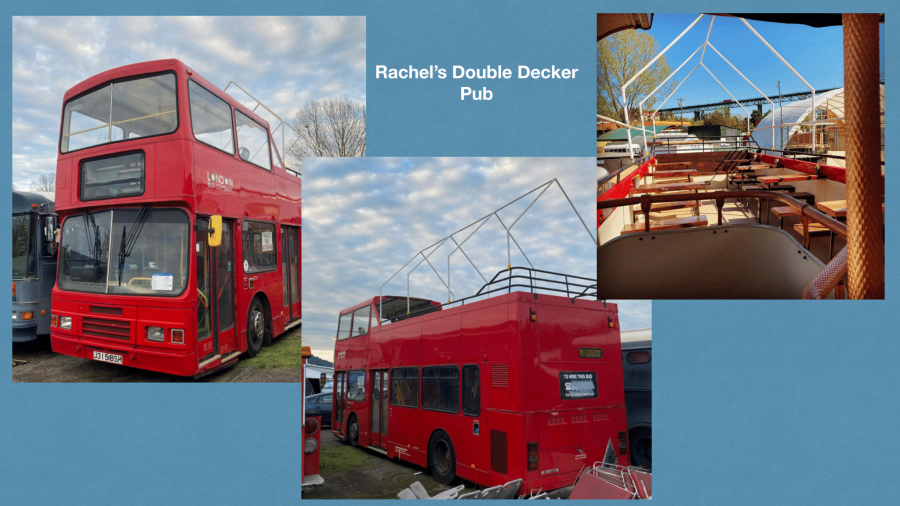PORTLAND, Ore. (KOIN) — As Downtown Portland struggles to recover from business closures and labor shortages brought on by the pandemic and a rise in crime, locals may have noticed a recent decline in traffic at Rose City’s famous food carts.
Since the grand opening of the newly relocated Portland food cart pods in July of 2021, ‘The Cart Blocks’ have been touted by city officials as a premier attraction with the potential to boost downtown business and increase foot traffic — But the once vibrant site has become more vacant in recent months.
“A lot of them[food cart owners] that are down there right now, are working harder than they normally do to keep business,” said Friends of Green Loop Director, Keith Jones. “And the state of downtown is not what it was.”
Jones said the new location and the Multnomah County Food Cart License process could also be contributing factors to the recent decline in business.
According to Jones, food cart licenses are annual, meaning those who pay to purchase a license in October essentially pay for the entire year but must renew come January. He told KOIN 6 News, “We actually got a few applicants who wanted to get into the space but we’re waiting for the new year to start so they could apply for Multnomah County food cart license.”
Despite the rise in food cart vacancies and a drop in foot traffic, Jones told KOIN 6 News the Cart Blocks site is far from failing and these trends are a natural part of the food cart business cycle.
“We are in the off-season for food carts. Typically that season goes from March, peaks in July, and then sort of peters off,” Jones explained. “October is really the last good month for food cart season, then they generally go into hibernation – and that’s pre-COVID.”

According to Jones, Portlanders can expect to see some new food cart trucks at the Cart Blocks, along with several big changes this Spring.
Friends of Green Loop received an additional $225,000 from City Council as part of the Fall Budget Monitoring Process, which will go directly to contractors for infrastructure and site improvements.
Some of the improvements coming to The Cart Blocks this Spring include the new Biketown stations and racks, additional street and traffic lighting to improve safety and visibility, outdoor seating, and a new performance stage.

Jones said the site is also introducing alcohol service with one of their newest food cart applicants.
“We’ve entered into an agreement with a cart called Rachel’s Double Decker Bus,” explained Jones. “It’s a London bus that’s been converted into a bar… And that’s our way of sort of trying out this alcohol service.”
According to Jones, the organization recently cleared permits with the OLCC and the City to allow Rachel’s Double Decker to serve spirits within the contained two-story bus.

The new cart is one of two applicants approved to join the Cart Blocks site this spring. Jones said he now has several applications to review and only four spots to fill.
Jone’s optimistic view of the Cart Block’s future is supported by Multnomah County data, which showed mobile licenses issued by the county rose from 1,021 in January of 2021 to 1,093 as of Jan. 3, 2022.
According to that report, the number of restaurant licenses issued has also increased from 3,249 in 2021, to 3,377 in January of 2022.
“That’s a hopeful sign, to see these applicants and people wanting to get back to downtown,” Jones said.
The new carts and many of the site improvements are set to be available to the public by early March, but Jones encourages locals to support the carts that are there now, as they struggle through the slow season.
“There’s some big stuff coming in,” said Jones. “But the best thing that people can do is support the carts that are there right now, because they are staying open as late as they can just to survive.”
He continued, “We fought hard to get the site here in two years, the city put a lot of faith in us, and people really want to see these carts come back. There’s a lot of effort we’re putting in, but also we really need the people of Portland to show up and come downtown to help us keep these businesses alive, because I think that they are keys to our economic recovery as we move forward.”
